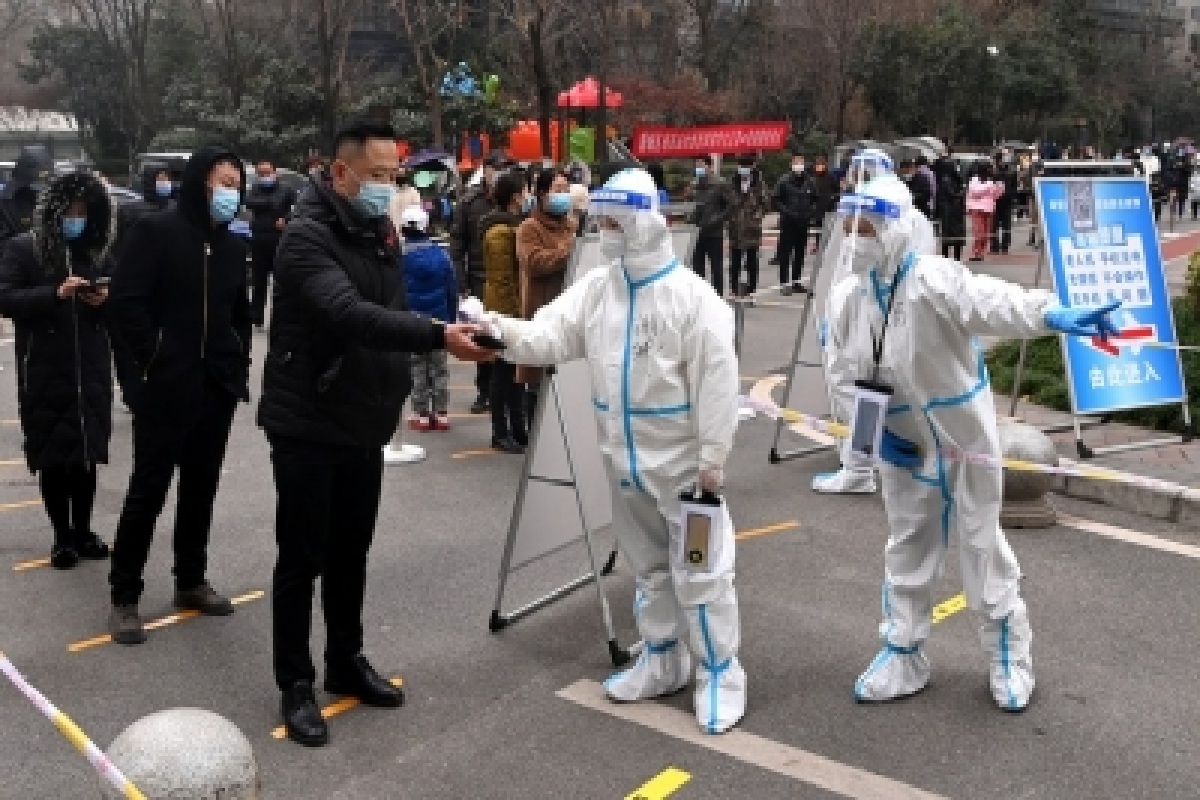Still unexplained
The hunt for the origins of Covid-19 has for the past four years been a tangled web of politics, power struggles, and international finger-pointing.
Pandemic-induced supply chain disruptions as well as global semiconductor shortages have brought home to the EU the need for like-minded, reliable partners.

Photo: IANS
What all the urgings of well-meaning anti-totalitarian activists and human rights advocates could not achieve, the Covid-19 pandemic and Russia’s war in Ukraine may have ~ a change in the position of the European Union (EU) on future relations with China and the distinct potential of a policy-tilt towards Taiwan. Director of the Brookings Asia Programme Janka Oertel underlines the significance of recent EU-China interactions which have been marked by an absence of substantive dialogue and have essentially been an exercise in doubling down on their respective positions. The EU has acknowledged that China’s “stated ambitions and coercive policies pose a challenge to trans-Atlantic interests and security”. This public statement, experts say, marks the lowest point in the slow deterioration of relations between Europe and China over the past few years.
China’s economic policies such as its market-distorting practices, industrial policies, and the global investment push challenging European competitiveness, not to mention Beijing’s “authoritarian advance” in Hong Kong and Xinjiang, have been troubling European countries for a while. But previously, says Oertel, the Chinese leadership had either been neutral or even supportive whenever Europe faced a crisis. In Russia’s 2008 war against Georgia and the annexation of Crimea in 2014, China stayed on the side-lines. And during the global financial crisis and European sovereign debt crisis in 2008-10, Beijing not only stabilised international markets but even supported troubled European economies. The EU, against this backdrop, was taken aback at China’s assertiveness at home and abroad during the pandemic ~ from zero-Covid to mask diplomacy. But the tipping point seems to have been Beijing’s stance on the Ukraine war.
Many in the EU had assumed at the beginning of the conflict that the Chinese would play a constructive role to end the fighting; that Beijing would place its geopolitical interests over purely economic considerations came as a shock to these policymakers. China has played along with, and even amplified, the Russian narrative that the Ukraine conflict is a manifestation of Moscow defending itself against the North Atlantic Treaty Organisation’s expansionist agenda. Beijing’s diplomatic support to and growing imports from Russia are strengthening President Vladimir Putin’s ability to continue the war. In this context of cooling relations with China, Taiwan comes into play for the EU, which is the island’s largest foreign investor. The volume of bilateral trade rose to more than 68 billion dollars in 2021.
Advertisement
Pandemic-induced supply chain disruptions as well as global semiconductor shortages have brought home to the EU the need for like-minded, reliable partners. In fact, Europe’s position on Taiwan shifted significantly during the pandemic. Taipei’s highly effective Covid-19 support for Europe including the delivery of protective equipment played an important part in this policy shift, especially when contrasted with Beijing’s hostile rhetoric trying to underscore the inability of democratic governments to handle the pandemic. Taiwan’s central role in post-pandemic semiconductor supplies, heightened geopolitical tensions due to the Ukraine war, and the weaponisation of trade has made the EU re-assess its position on developments in the Taiwan Strait. China’s frequent incursions into Taiwan’s airspace and its massive military build-up, a matter of concern for European countries over past years, is now, after Russia’s invasion of Ukraine, being viewed as a dealbreaker
Advertisement